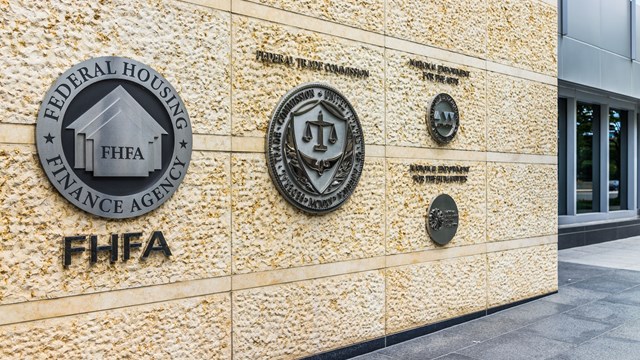
The old saying that the only sure things in life are death and taxes leaves out a third certainty: legislation. Across New England each year, thousands of bills get filed in state legislatures, many of them as mundane as the naming of a bridge or a new state “something”—like designating the Fluffernutter as Massachusetts’ official sandwich.
But amid the fluff of each legislative session, are a handful of bills that affect condominium owners and their associations on a day-to-day level.
In the 2014 legislative sessions — most of which have just ended or are nearing an end — condo professionals have proposed or closely followed legislation of importance to the industry. Not surprisingly, finances play a role in most of those bills.
While the condominium market has been on the upswing, effects of the real estate turmoil of a few years ago continue to plague community associations. So it’s not surprising that legislation of interest tends to relate to financial issues like foreclosures and priority liens.
Connecticut
This year, the Legislative Action Committe (LAC) of the Connecticut Chapter of CAI worked hand-in-hand with an advocacy group, the Connecticut Condominium Owners Coalition, proposing creation of a mediation program for condominium disputes within the Connecticut court system. The court would appoint a special master — a lawyer knowledgeable in community association law — to hear arguments from both sides in a dispute. Both parties would pay a $250 fee, “so each side feels they have some skin in the game,” says LAC Chairman Scott Sandler, a partner with the law offices of Perlstein, Sandler & McCracken, LLC in Farmington, Connecticut.
The decision, he notes, would not be binding. “If it’s not acceptable to both parties, they are free to proceed with litigation,” he says. The advantage is that people would not be required to file a lawsuit before asking the court to appoint a mediator. “It would provide an alternative method of addressing disputes – which could be between unit owners, or between associations and unit owners.”
Unfortunately, Sandler says, it’s unlikely the legislation will pass this year because there are costs to the court system involved. But he’s not giving up hope, and if the bill fails this year, he anticipates re-filing for the next legislative session. “It is something that will be reintroduced next year, with some variations on funding possibilities to try to make it more attractive and less expensive to the state,” he predicts.
Rhode Island
Things were quiet this year on the Rhode Island legislative front. “There’s nothing really brewing legislatively for condominiums, which can be a good thing,” says attorney Ed Allcock, co-chair of the Rhode Island LAC. But, he notes, “there is an ongoing court battle over the priority lien in Rhode Island that is going to make its way to the Rhode Island Supreme Court,” Allcock, a partner with the law firm of Marcus, Errico, Emmer & Brooks, P.C.,, says he will be preparing an amicus brief in that case.
Vermont
Three bills related to condominiums that were introduced this session remain in committee. The most familiar among them is H787, an act relating to weatherization measures in common interest communities, which would prohibit restrictions on homeowner energy-conservation or renewable energy efforts, including the installation of clotheslines and solar panels. It has been sitting since January in the House Committee on Natural Resources and Energy.
Maine
As elsewhere, associations in Maine continue to struggle with foreclosures. “There are still a lot of foreclosures around, and some associations are really getting hit,” says attorney Joseph Carleton, chairman of the Maine Legislative Action Committee (LAC) for the New England chapter of the Community Associations Institute (CAI-NE). “Banks are foreclosing and the foreclosure process takes a lot of time. In Maine, the process takes years. So although we don’t have as many in number as some folks do, when we have them, there’s likely to be a long time before the association starts collecting again.”
During the foreclosure process, associations typically lose out on condo fees, pushing the burden onto the backs of other unit owners. “The Legislature also added on (to the judicial foreclosure) a mediation process, which lengthens an already lengthy process — and some of the banks, especially out-of-state banks, who have foreclosures have not been anxious to speed up the process because they would just as soon wait for the market to recover,” Carleton says.
With that in mind, the Maine LAC has tried in the past to get “super lien” legislation approved, giving associations a priority position to collect unpaid condo fees. There was no legislation filed to that effect in the current session, but Carleton says it’s definitely among items being considered in the future.
“We’ve been to the well a few times,” he says. “The banks have opposed us … their stated reason is they don’t want anyone coming in ahead of the bank. I understand in other states the banks have a different attitude. It’s also been opposed by the realtors, and that’s a real puzzle to me. We have one association where three out of the four units are in foreclosure, and the owner of the remaining unit is just sitting there; the process has gone on for years.”
The Maine legislature allows bills to be filed “as a matter of right” from late summer to the beginning of the calendar year, and Carleton says the LAC is assembling a package now for the start of the 2015 session. “We have a bucket list, and we will have a meeting to see what our priorities should be.”
New Hampshire
Liens are on the minds of New Hampshire associations, too, and condo advocates are watching House Bill 1283, which would restrict associations’ ability to pursue and enforce liens if the association’s charter lapses at any time. At press time, the bill had been given an “ought to pass” recommendation from the house. On the other side of the coin, House Bill 1115 would exclude condominium assessments from a unit owner’s homestead, offering the owner no protection against enforcement of condo lien procedures. It also received “ought to pass” recommendations in the House, and from the Senate Judiciary Committee.
The House is also considering a bill, HB 1595, creating a state condominium dispute resolution board. The bill was referred for an interim study in late March, and no action has been taken since.
Sitting in limbo now —essentially, tabled until the 2015 session —is House Bill 1594, a bill creating property manager licensing.
Massachusetts
Priority liens were also on the minds of LAC members in Massachusetts, where a “super lien” provision has been in place for decades.
But, says attorney Matthew Gaines, chairman of CAI-New England’s Massachusetts LAC, some banks have been looking for a loophole — claiming that an association is entitled to only one priority lien, period. “Say an owner has a 30-year mortgage, then falls behind after five years, and we get a priority lien. Then the bank pays us off, or maybe the unit owner gets current, and then at some point falls behind again, we try to get another priority lien,” he explains.
“Some banks are trying to argue — crazy as it sounds — that you only get one priority lien for the entire life of the mortgage. I don’t think that’s what the Legislature intended 20 years ago when they gave condominiums in Massachusetts the priority lien,” says Gaines, an associate with the law firm of Marcus, Errico, Emmer & Brooks, P.C. in Braintree, Massachusetts. To make sure the law is understood by all parties as intended, the LAC filed Senate Bill 603, an act to clarify condominium priority liens. “We’re simply trying to fix the statute to make that abundantly clear,” Gaines says. The bill states that “priority liens shall mean all six-month lien periods established in accordance with this section, and shall not be limited to one six-month lien period, whether or not the lien periods are successive.”
The bill was reported out of committee favorably this spring, and at press time, Gaines was waiting for a vote in the full Senate.
Another finance-related bill is SB 726, dealing with the statute of limitations for construction defect claims. Although not specifically tied to condominiums, the issue is more prevalent among condos than in other situations. The problem, Gaines says, is that there is a three-year window during which a homeowner can sue a developer, starting from the time a problem is discovered. But in a community association, developers generally don’t turn over the association to the homeowners until a certain benchmark — such as 75 percent of the units being sold — is reached. That could be years from the time a homeowner buys a unit. In the meantime, if a defect is discovered, the unit owner is pretty much on their own in trying to get a solution. “If the developer is still in charge of the association, you’re not going to get the developer to sue himself – so the only other option is to pass the hat, so to speak,” among fellow owners, Gaines says.
The bill, still in the Judiciary Committee, would give owners or the association three years after the developer gives up control. “We’re hoping they move it out of committee soon so it will pass by the end of the year,” Gaines says.
Away from the financial fray, the LAC also filed Senate Bill 602, designed to clarify two areas of Chapter 183A, the condominium statute. The first is a change for granting easements for limited common areas, dropping the requirement for an amendment to the condominium documents and allowing the board of trustees to vote on those easements. A prior change to Chapter 183A created conflicting regulations, and the current bill seeks to remove the conflict. The easements, Gaines says, might be for someone putting a deck on a unit, or installing HVAC equipment in a limited common area.
The second part of SB 602, he says, would change the requirement for amendments to condominium documents so that associations would not have to acquire approval of mortgage holders. “With a lot of documents from the 1970s or ‘80s, not only do you need the vote of 75 percent of unit owners, but you also need the vote of 51 percent of the mortgage holders – putting up another hurdle. In the ‘70s or ‘80s, it wasn’t so hard, because there were a lot of smaller banks where you could probably walk in and the president of the bank was sitting in the office. Now, good luck even finding an address of where to send that letter, and finding someone with the authority to do it, and in a timely manner,” Gaines says.
The bill, still in the Housing Committee, would allow associations to send letters by certified mail, and if a response isn’t received with 60 days, consent is deemed given.
The LAC is also watching, without taking a stand, a bill filed by a unit owner that would put teeth into the state requirement that associations or managers retain and provide access to certain records. Access is already mandated, but “if a manager says no, they are not penalized for not turning over the records,” Gaines notes. Under the proposed legislation, if an owner sues for that access and wins, then the association would have to pay the unit owner’s legal fees for the suit. “That bill is moving along, already passed the Senate and is awaiting action in the House at this point,” he says.
Lots of bills, not a lot of action. But for legislation watchers—as with die-hard fans of struggling baseball teams— there’s always next year.
Pat Gale is associate editor of New England Condominium.






Leave a Comment